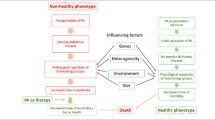Abstract
The health benefits of exercise are well established, yet individuals with serious mental illness (SMI) have a shorter life expectancy due in large part to physical health complications associated with poor diet and lack of exercise. There is a paucity of research examining exercise in this population with the majority of studies having examined interventions with limited feasibility and sustainability. Before developing an intervention, a thorough exploration of client and clinician perspectives on exercise and its associated barriers is warranted. Twelve clients and fourteen clinicians participated in focus groups aimed at examining exercise, barriers, incentives, and attitudes about walking groups. Results indicated that clients and clinicians identified walking as the primary form of exercise, yet barriers impeded consistent participation. Distinct themes arose between groups; however, both clients and clinicians reported interest in a combination group/pedometer based walking program for individuals with SMI. Future research should consider examining walking programs for this population.





Similar content being viewed by others
References
Acil, A. A., Dogan, S., & Dogan, O. (2008). The effects of physical exercises to mental state and quality of life in patients with schizophrenia. Journal of Psychiatric and Mental Health Nursing, 15(10), 808–815.
Armstrong, D., Gosling, A., Weinman, J., & Marteau, T. (1997). The place of inter-rater reliability in qualitative research: An empirical study. Sociology, 31(3), 597–606.
Aschbrenner, K., Carpenter-Song, E., Mueser, K., Kinney, A., Pratt, S., & Bartels, S. (2013). A qualitative study of social facilitators and barriers to health behavior change among persons with serious mental illness. Community Mental Health Journal, 49(2), 207–212.
Bassuk, S. S., & Manson, J. E. (2005). Epidemiological evidence for the role of physical activity in reducing risk of type 2 diabetes and cardiovascular disease. Journal of Applied Physiology, 99(3), 1193–1204.
Beebe, L. H., Tian, L., Morris, N., Goodwin, A., Allen, S. S., & Kuldau, J. (2005). Effects of exercise on mental and physical health parameters of persons with schizophrenia. Issues in Mental Health Nursing, 26(6), 661–676.
Boeije, H. (2002). A purposeful approach to the constant comparative method in the analysis of qualitative interviews. Quality and Quantity, 36(4), 391–409.
Brosse, A. L., Sheets, E. S., Lett, H. S., & Blumenthal, J. A. (2002). Exercise and the treatment of clinical depression in adults: Recent findings and future directions. Sports Medicine, 32(12), 741–760.
Connolly, M., & Kelly, C. (2005). Lifestyle and physical health in schizophrenia. Advances in Psychiatric Treatment, 11, 125–132.
Gorczynski, P., & Faulkner, G. (2010). Exercise therapy for schizophrenia. Cochrane Database Systematic Review, 5, 1–43.
Happell, B., Scott, D., Platania-Phung, C., & Nankivell, J. (2012). Nurses’ views on physical activity for people with serious mental illness. Mental Health and Physical Activity, 5(1), 4–12.
Kane, I., Lee, H., Sereika, S., & Brar, J. (2012). Feasibility of pedometers for adults with schizophrenia: Pilot study. Journal of Psychiatric and Mental Health Nursing, 19(1), 8–14.
Lawlor, D. A., & Hopker, S. W. (2001). The effectiveness of exercise as an intervention in the management of depression: Systematic review and meta-regression analysis of randomised controlled trials. British Medical Journal, 322(7289), 763.
Lester, H., Tritter, J. Q., & Sorohan, H. (2005). Patients’ and health professionals’ views on primary care for people with serious mental illness: Focus group study. British Medical Journal, 330(7500), 1122.
Lindamer, L. A., McKibbin, C., Norman, G. J., Jordan, L., Harrison, K., Abeyesinhe, S., & Patrick, K. (2008). Assessment of physical activity in middle-aged and older adults with schizophrenia. Schizophrenia Research, 104(1), 294–301.
Marzolini, S., Jensen, B., & Melville, P. (2009). Feasibility and effects of a group-based resistance and aerobic exercise program for individuals with severe schizophrenia: a multidisciplinary approach. Mental Health and Physical Activity, 2(1), 29–36.
Mason, O. J., & Holt, R. (2012). Mental health and physical activity interventions: A review of the qualitative literature. Journal of Mental Health, 21(3), 274–284.
McAuley, E., Mailey, E. L., Szabo, A. N., & Gothe, N. (2013). Physical activity and personal agency: Self-efficacy as a determinant, consequence, and mediator. In P. Ekkekakis (Ed.), Routledge handbook of physical activity and mental health (pp. 224–235). New York: Routledge.
McDevitt, J., Snyder, M., Miller, A., & Wilbur, J. (2006). Perceptions of barriers and benefits to physical activity among outpatients in psychiatric rehabilitation. Journal of Nursing Scholarship, 38(1), 50–55.
McKibbin, C. L., Kitchen, K. A., Wykes, T. L., & Lee, A. A. (2013). Barriers and facilitators of a healthy lifestyle among persons with serious and persistent mental illness: perspectives of community mental health providers. Community Mental Health Journal, 1–11.
Onwuegbuzie, A. J., Dickinson, W. B., Leech, N. L., & Zoran, A. G. (2009). A qualitative framework for collecting and analyzing data in focus group research. International Journal of Qualitative Methods, 8(3), 1–21.
Pearsall, R., Smith, D. J., Pelosi, A., & Geddes, J. (2014). Exercise therapy in adults with serious mental illness: A systematic review and meta-analysis. BMC Psychiatry, 14(1), 117.
Pelham, T. W., Campagna, P. D., Ritvo, P. G., & Birnie, W. A. (1993). The effects of exercise therapy on clients in a psychiatric rehabilitation program. Psychosocial Rehabilitation Journal, 16(4), 75–84.
Putter, J. V., & Nolen, A. L. (2010). Comparing results from constant comparative and computer software methods: A reflection about qualitative data analysis. Journal of Ethnographic and Qualitative Research, 5, 99–112.
Richardson, C. R., Faulkner, G., McDevitt, J., Skrinar, G. S., Hutchinson, D. S., & Piette, J. D. (2005). Integrating physical activity into mental health services for persons with serious mental illness. Psychiatric Services, 56(3), 324–333.
Scheewe, T. W., Takken, T., Kahn, R. S., Cahn, W., & Backx, F. J. (2012). Effects of exercise therapy on cardiorespiratory fitness in patients with schizophrenia. Medicine and Science in Sports and Exercise, 44(10), 1834–1842.
Schulze, B., & Angermeyer, M. C. (2003). Subjective experiences of stigma. A focus group study of schizophrenic patients, their relatives and mental health professionals. Social Science and Medicine, 56(2), 299–312.
Schutzer, K. A., & Graves, B. S. (2004). Barriers and motivations to exercise in older adults. Preventive Medicine, 39(5), 1056–1061.
Skrinar, G. S., Huxley, N. A., Hutchinson, D. S., Menninger, E., & Glew, P. (2005). The role of a fitness intervention on people with serious psychiatric disabilities. Psychiatric Rehabilitation Journal, 29(2), 122–127.
Smith, P. J., Blumenthal, J. A., Hoffman, B. M., Cooper, H., Strauman, T. A., et al. (2010). Aerobic exercise and neurocognitive performance: A meta-analytic review of randomized controlled trials. Psychosomatic Medicine, 72, 239–252.
Utschig, A. C., Otto, M. W., Powers, M. B., & Smits, J. A. J. (2013). The relationship between physical activity and anxiety and its disorders. In P. Ekkekakis (Ed.), Routledge handbook of physical activity and mental health (pp. 105–116). New York: Routledge.
Acknowledgments
The authors would like to acknowledge the assistance of Thava Mahadevan, M.A. and Kelly Smedley, R.N. for aiding recruitment efforts and administrative support at STEP, Bonita Marks, Ph.D. and James Blumenthal, Ph.D. for design consultation, Kelsey Ludwig, B.A. for assistance in conducting focus groups, and Kagan Griffin for providing data management services.
Conflict of interest
The authors declare that they have no conflict of interest.
Human and Animal Rights
All procedures performed in studies involving human participants were in accordance with the ethical standards of the institutional and/or national research committee and with the 1964 Helsinki declaration and its later amendments or comparable ethical standards. This article does not contain any studies with animals performed by any of the authors.
Informed Consent
Informed consent was obtained from all individual participants included in the study.
Author information
Authors and Affiliations
Corresponding author
Rights and permissions
About this article
Cite this article
Browne, J., Mihas, P. & Penn, D.L. Focus on Exercise: Client and Clinician Perspectives on Exercise in Individuals with Serious Mental Illness. Community Ment Health J 52, 387–394 (2016). https://doi.org/10.1007/s10597-015-9896-y
Received:
Accepted:
Published:
Issue Date:
DOI: https://doi.org/10.1007/s10597-015-9896-y




